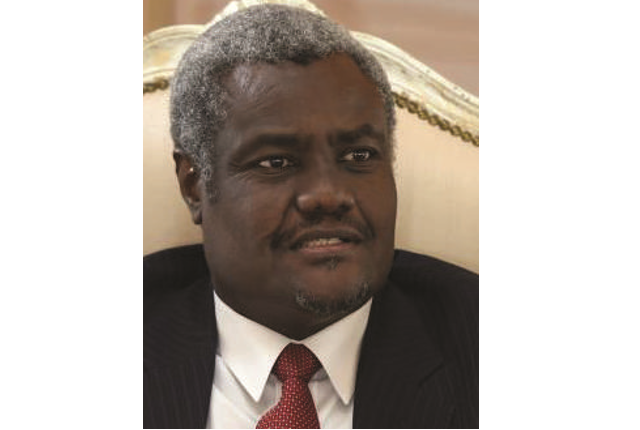
And why East Africa lost more over outdated voting habits at continental body
As the heads of state and government of the African Union meeting in the Ethiopian capital, Addis Ababa, started voting on Jan. 30 for the next head of the continental body, Kenya’s Minister of Foreign Affairs, Amina Mohamed, fancied she would be the one.
She and her President, Uhuru Kenyatta, had mounted a strong lobby and several media outlets had named her the front runner. But when the winner was announced, after seven rounds, it was the Chadian Foreign Minister, Moussa Faki Mahamat.
Mahamat, 56, beat three other candidates, Senegal’s Abdoulaye Bathily, Botswana’s foreign minister Pelonomi Venson-Moitoi, and Agapito Mba Mokuy of Equatorial Guinea.
The Kenyan government was quick to congratulate Mahamat but Amina’s vitriolic concession speech provided fodder for the media.
In it, she accused some of Kenya’s neighbours of being “deceptive” and said the Kenyan government “shall be interrogating claims that even some of our closest neighbours voted against us.”
Apparently, some countries from the East African Community (EAC) and the Inter-Governmental Authority on Development (IGAD), the regional bodies on which Amina was banking for assured support switched sides at a critical moment. IGAD includes eight countries; Kenya,Uganda, Djibouti, Sudan, Eritrea, Ethiopia, Somalia, and South Sudan. Amina also counted on automatic support of the other EAC countries that are not in IGAD like Tanzania, Burundi, and Rwanda.
In African Union terms, however, the Eastern region also includes the Comoros, Mauritius, Madagascar, and Seychelles. Together, Amina assumed she was starting off with 15 votes in the bag.
When the vote happened, it was by secret ballot, and Amina did not get some of the votes she expected.
“Some neighbours did not stand with us. I think the fear from some that maybe Kenya was going to get it (made them not support us) so they probably withdrew their support.”
“I think we (Kenya) are very honest people, so it is difficult to deal with deceptive people. Going forward, it is a good lesson to learn,” she said.
Amina did not name any countries that did not vote for her. But Kenyan media reports named Uganda, Burundi and Djibouti.
Uganda and Burundi have issued official denials, calling the allegations baseless, and said they voted for Amina.
“Uganda wishes to state categorically that our support to the candidature of Ambassador Amina Mohamed was our endorsed East African candidate,” a statement from Uganda’s foreign affairs ministry said.
Burundi also issued a statement on Feb. 2 saying: “Burundi regrets these accusations made by authorities at the Ministry of Foreign Affairs of Kenya since their character at the time was emotional and irrational.”
Despite the denials, a top diplomat in South Sudan reportedly told The Sudan Tribune on Jan.31 that his country joined other East African countries that broke ranks and supported the Chadian because of regional level differences.
Amina had no chance
As details of the vote remain secret, Amina’s loss has led to questions about whether she ever had a chance in the first place.
Some observers have pointed at the lackluster performance of other EAC candidates vying for either continental or global positions and concluded that other than whining after every loss, the EAC needs to do more to ensure success of its candidates.
Isaac Shinyekwa, a trade and regional integration research fellow at the Makerere University-based Economic Policy Research Centre (EPRC) says the Eastern Africa region should learn not to field weak candidates. He said although ECOWAS is a strong regional bloc and always takes a single resolution when it comes to issues that affect all of them; it is also smart enough to withdraw when it does not have a strong candidate.
“It shows that they are strategic in their approach compared to the other blocs,” he says.
 The Independent Uganda: You get the Truth we Pay the Price
The Independent Uganda: You get the Truth we Pay the Price




My fellow countrymen are a prideful and envious lot. We will always take to twitter to shut someone down just because they dare to take charge. That’s what happened with our first lady half marathon 2017 edition. We shut down a worthy cause because of politics. Some recently tried it with Safaricom’s Bob Collymore and his wife.